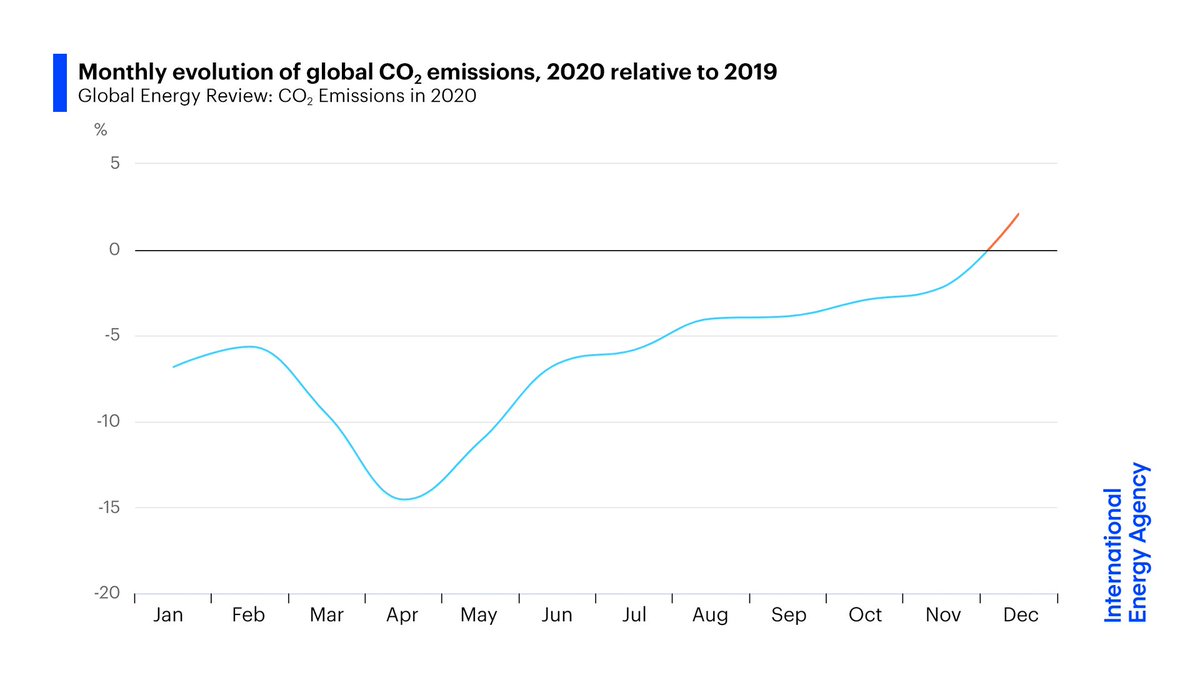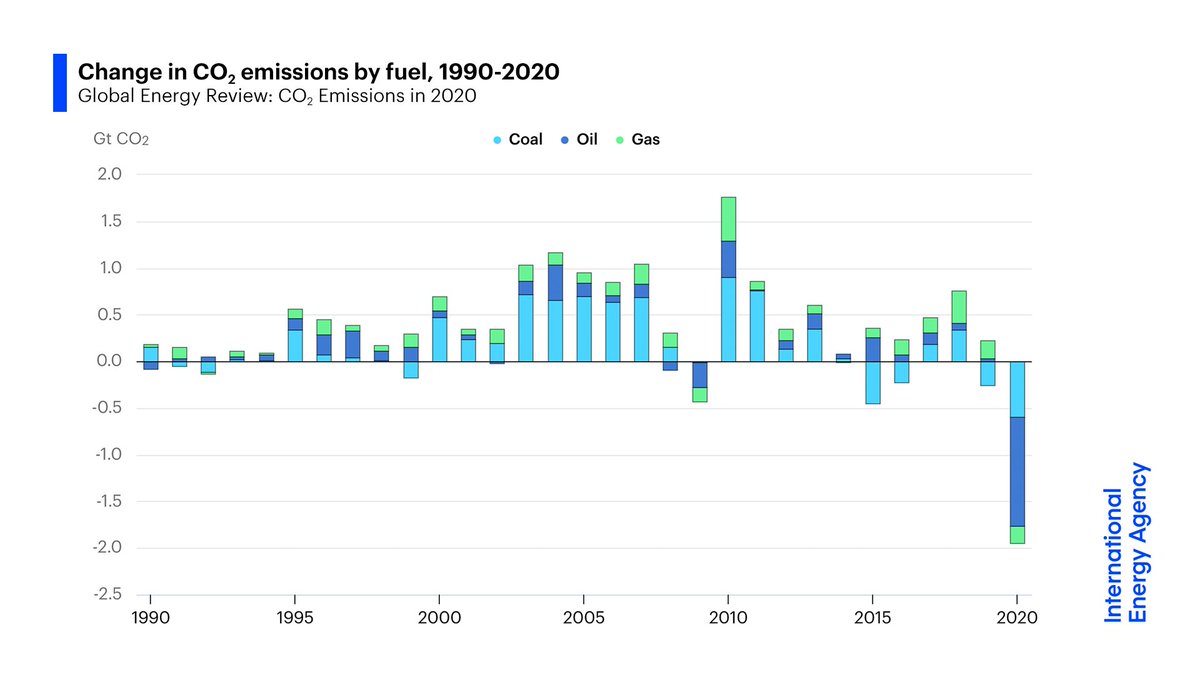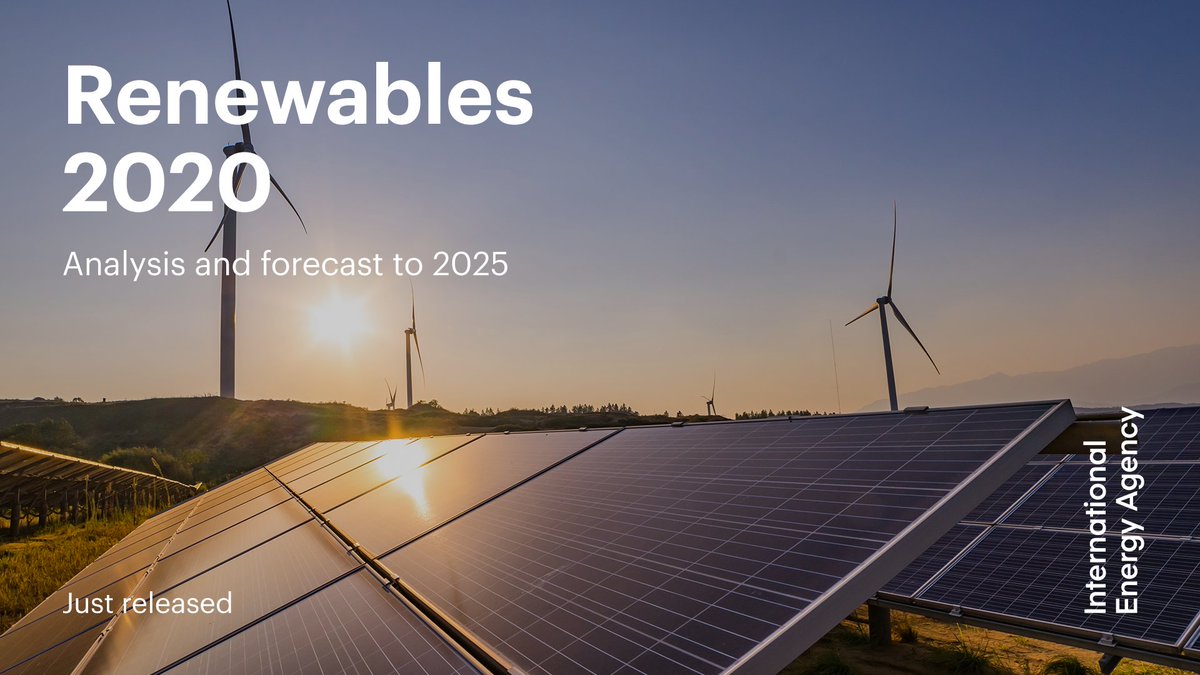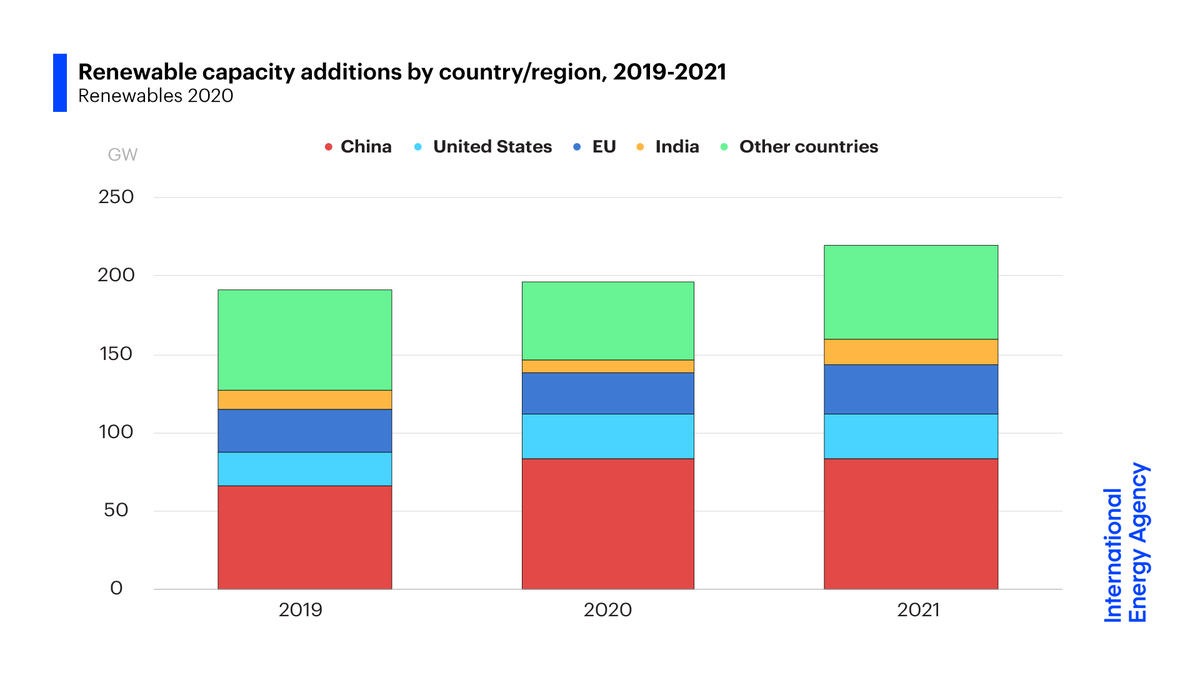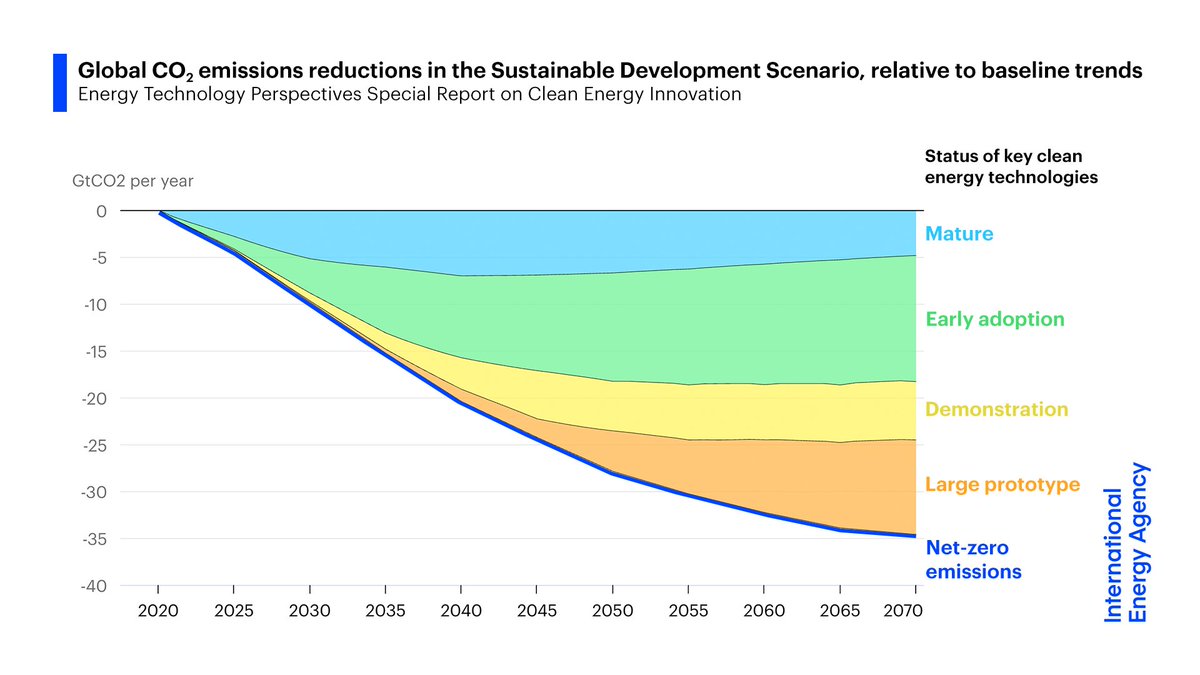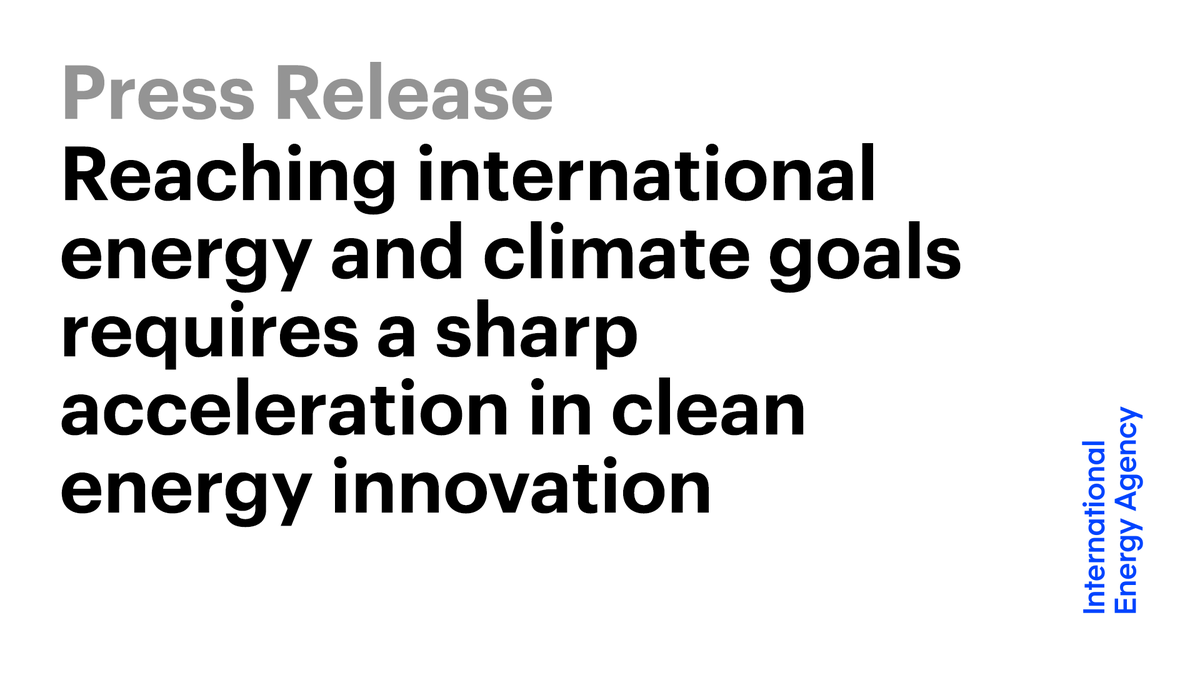
Global CO2 emissions are set to jump by 1.5 gigatonnes in 2021 – led by a rebound in coal demand mainly from the power sector.
It would be the 2nd largest rise in emissions ever. This economic recovery is anything but sustainable for our climate.
More ➡️ iea.li/3dw4xqX
It would be the 2nd largest rise in emissions ever. This economic recovery is anything but sustainable for our climate.
More ➡️ iea.li/3dw4xqX
Global coal demand is expected to rebound by 4.5% this year, taking it higher than in 2019 & close to its 2014 peak.
Coal's growth in 2021, driven by the power sector, is set to be 60% bigger than that of all renewables combined.
Read more from @IEA: iea.li/3eesEtn
Coal's growth in 2021, driven by the power sector, is set to be 60% bigger than that of all renewables combined.
Read more from @IEA: iea.li/3eesEtn
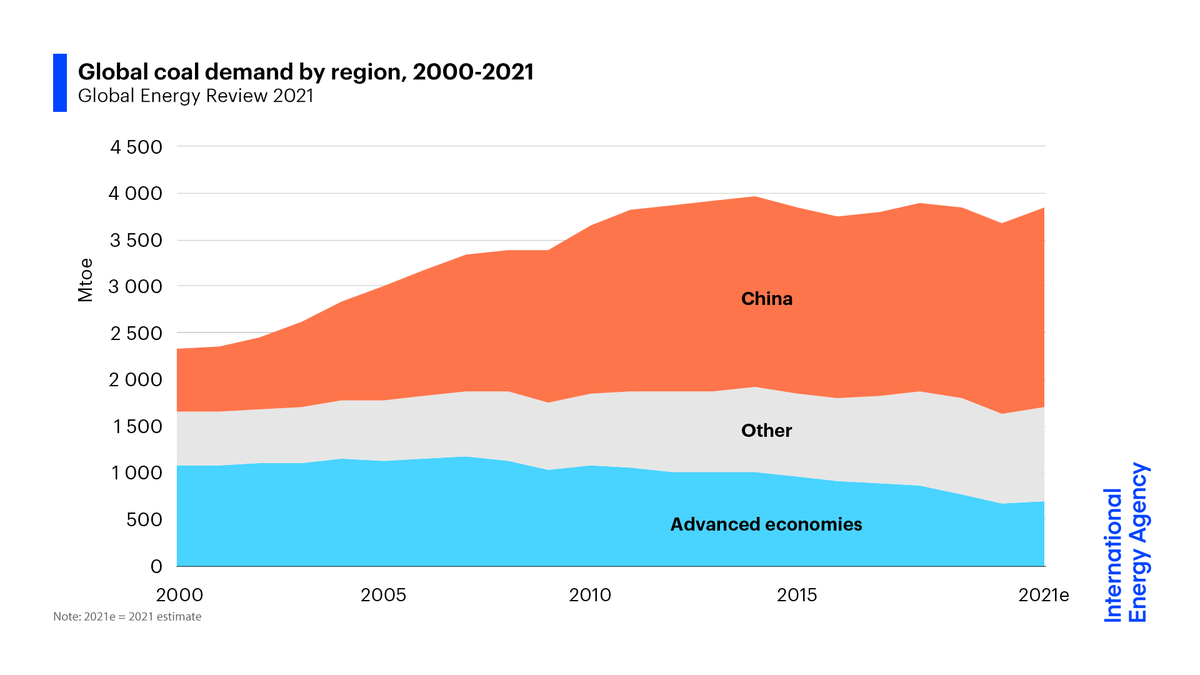
Demand for fossil fuels is growing rapidly in 2021, with gas set to rise the most above its 2019 level.
Oil demand is also rebounding fast, but with the aviation sector still sluggish, it is set to stay below its 2019 peak.
Major policy changes are needed to alter these trends.
Oil demand is also rebounding fast, but with the aviation sector still sluggish, it is set to stay below its 2019 peak.
Major policy changes are needed to alter these trends.
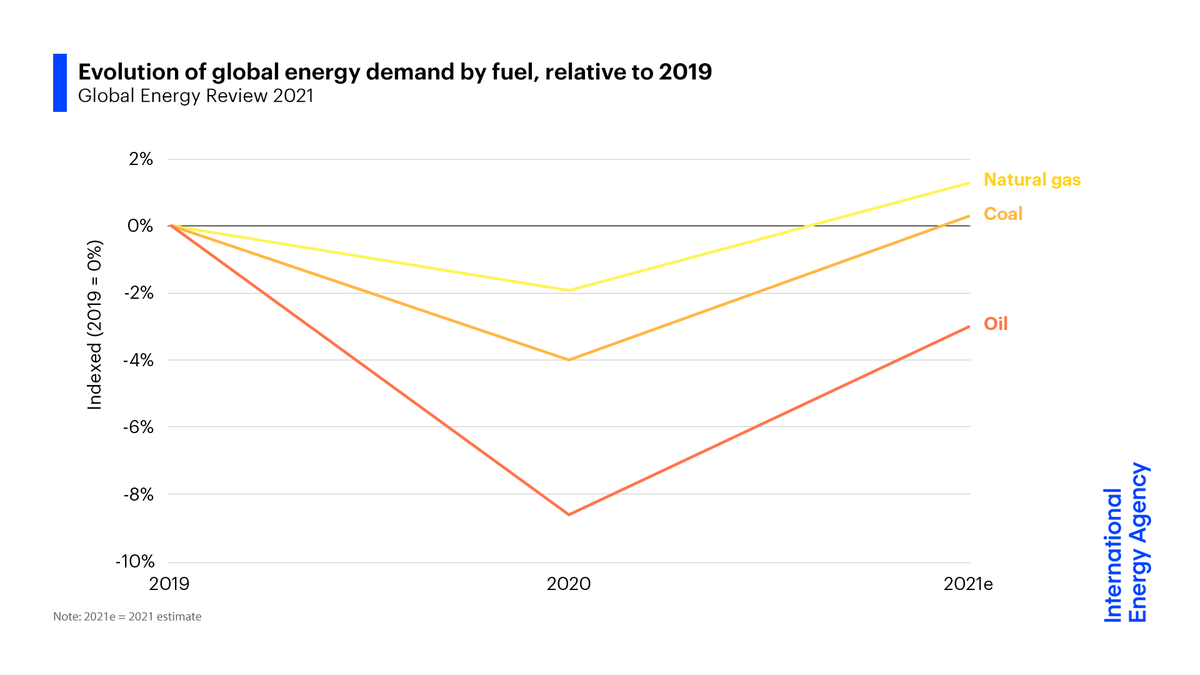
Good news: the growth of renewable power is accelerating, with solar & wind set for record increases
Renewable electricity is expected to grow by over 8% in 2021, providing most of the rise in global power supply. Almost half the growth comes from China, followed by the US & EU.
Renewable electricity is expected to grow by over 8% in 2021, providing most of the rise in global power supply. Almost half the growth comes from China, followed by the US & EU.
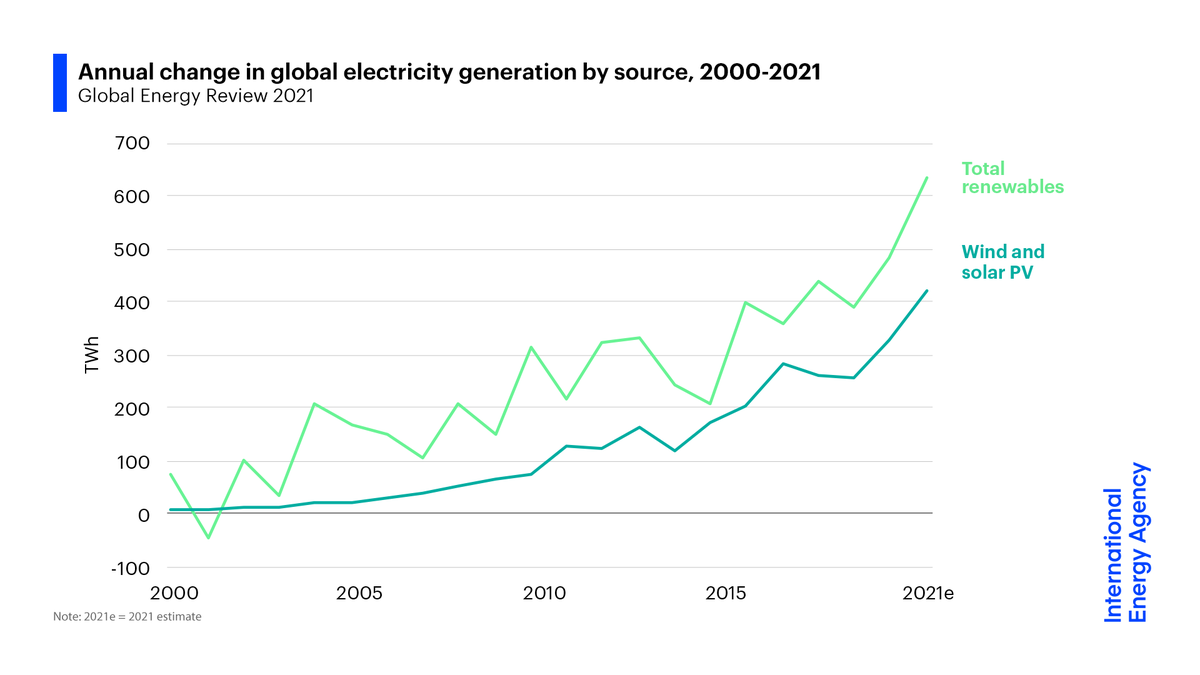
Our new @IEA report shows that global energy-related CO2 emissions trends are dire.
If governments don't act now to speed the shift from fossil fuels to clean energy, things will get worse in 2022.
This week's #LeadersClimateSummit is a key moment ⬇️ iea.li/3x5E8rL
If governments don't act now to speed the shift from fossil fuels to clean energy, things will get worse in 2022.
This week's #LeadersClimateSummit is a key moment ⬇️ iea.li/3x5E8rL
• • •
Missing some Tweet in this thread? You can try to
force a refresh

